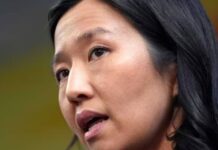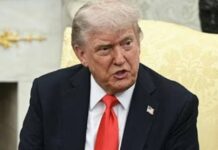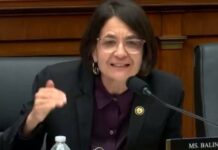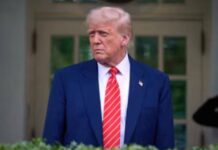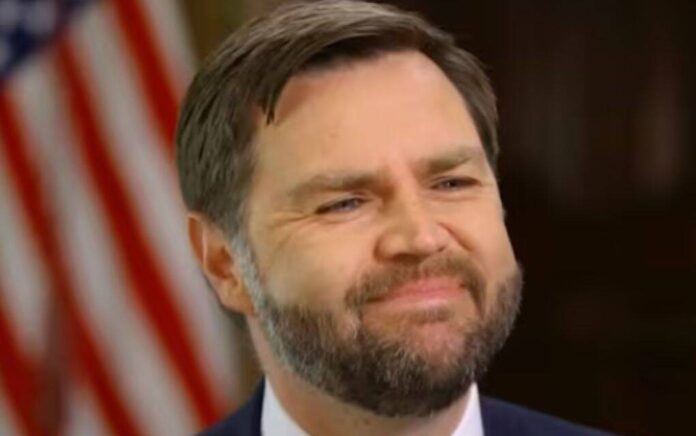
VP J.D. Vance has risen to superstardom for the Trump admin. Everyone wants to know if he’s running in 2028.
And Vice President J.D. Vance went rogue during a speech and made a comment he is seriously regretting.
Vance and Rubio Herald the Future of MAGA at New World Gala
At a black-tie gathering in Washington’s National Building Museum, Vice President J.D. Vance and Secretary of State Marco Rubio took the stage at American Compass’ “New World Gala,” offering a compelling glimpse into the Republican Party’s future. The event, attended by many who will shape the party in the years ahead, carried an unspoken but palpable focus on the 2028 presidential race. Both men, seen as potential standard-bearers for the America First movement, delivered remarks that clearly had 2028 intentions behind them.
The gala was framed as a celebration of the economic populism that has reshaped the Republican Party under Trump’s leadership. However, the evening served as a platform for Vance and Rubio to lay the intellectual foundation for a MAGA movement that endures beyond the current administration. Their speeches emphasized reindustrialization, national sovereignty, and a renewed focus on the middle class, signaling a shift from the pre-Trump GOP’s priorities.
“This is not a five, a 10 — this is a 20-year project to actually get America back to common-sense economic policy,” Vance said, framing the movement as a long-term endeavor to restore economic independence and prioritize working-class Americans.
Rubio, who spoke before Vance, echoed this sentiment, describing the nation as undergoing a transformative shift. “This is going to be the work of a generation,” he told the youthful audience. “There’s still much work to be done.” His remarks carried a scholarly tone, delving into the historical context of global economic policies and their impact on American sovereignty.
Both men praised each other warmly, projecting unity and shared purpose. Their visions aligned on key themes of revitalizing American manufacturing, embracing an America First approach to trade and foreign policy, and empowering the next generation to lead. They critiqued the pre-Trump era for neglecting the middle class and allowing reliance on foreign nations, which they argued has weakened national security.
“You can never be secure as a nation unless you’re able to feed your people, and unless you’re able to make the things that your economy needs in order to function and ultimately to defend yourself,” Rubio said, emphasizing the need for self-reliance in critical industries.
Vance attributed Trump’s electoral success to his willingness to challenge the status quo. “This isn’t working,” Vance said, quoting the president’s blunt assessment of decades of economic policy that favored globalization over American workers. His remarks resonated with the audience, many of whom see him as the natural successor to Trump’s movement.
The event’s subtext was clear: the GOP is preparing for a post-Trump era, and Vance and Rubio are positioning themselves as its architects. While neither mentioned the 2028 election explicitly, their appeals to GOP voters—who will soon choose the party’s next leader—were unmistakable. Both men sought to unify the party’s diverse factions, from populists to traditional conservatives, a balancing act Trump has mastered in securing three consecutive nominations.
Notably absent from their speeches was any mention of the GOP megabill, a contentious piece of legislation that has divided the party. The bill, which passed the House, includes provisions that could strip health insurance from millions of low-income Americans and reduce funding for food assistance, while offering tax breaks to high earners. These measures clash with the economic populism championed by American Compass, which has advocated for higher taxes on corporations and the wealthy.
Vance, in a Q&A with American Compass founder Oren Cass, leaned into his populist roots, emphasizing coalition-building to bridge the party’s ideological divides. His approach mirrored his efforts earlier this year at a gathering of tech and populist conservatives, where he worked to align the tech right with the broader MAGA base. “I want normal people who work hard and play by the rules to have a good life,” Vance said, casting himself as a champion of everyday Americans.
Rubio’s speech took more of a focus on the U.S. position in the world, arguing that the post-Cold War era led nations, including the U.S., to prioritize global interests over national ones. “Every single nation state we interact with prioritizes their national interest in their interactions with us,” Rubio said. “And we need to begin to do that again. And we’re beginning to do that again.” His remarks framed the America First movement as a necessary correction to decades of misguided policy.
Vance’s prominence within the MAGA movement is undeniable. Polls reflect his strong standing among Republicans, with over 60 percent supporting him in the Conservative Political Action Conference’s straw poll and 69 percent of GOP voters in a YouGov survey considering him for the 2028 primary. Rubio, while trailing at 34 percent in the same poll, remains a respected figure whose foreign policy expertise complements Vance’s domestic focus.
The gala highlighted Vance’s ability to connect with voters through plainspoken rhetoric. “Most of our fellow Americans, they’re not nearly as dumb as Washington, D.C., assumes they are,” he said. “They are actually very smart.” This line drew enthusiastic applause, reinforcing his appeal as a relatable advocate for the working class.
As the evening unfolded, it became clear that Vance and Rubio were not merely reflecting on the present but laying the groundwork for the future. The absence of any mention of 2028 only amplified its presence, as both men positioned themselves as leaders ready to guide the party forward.


